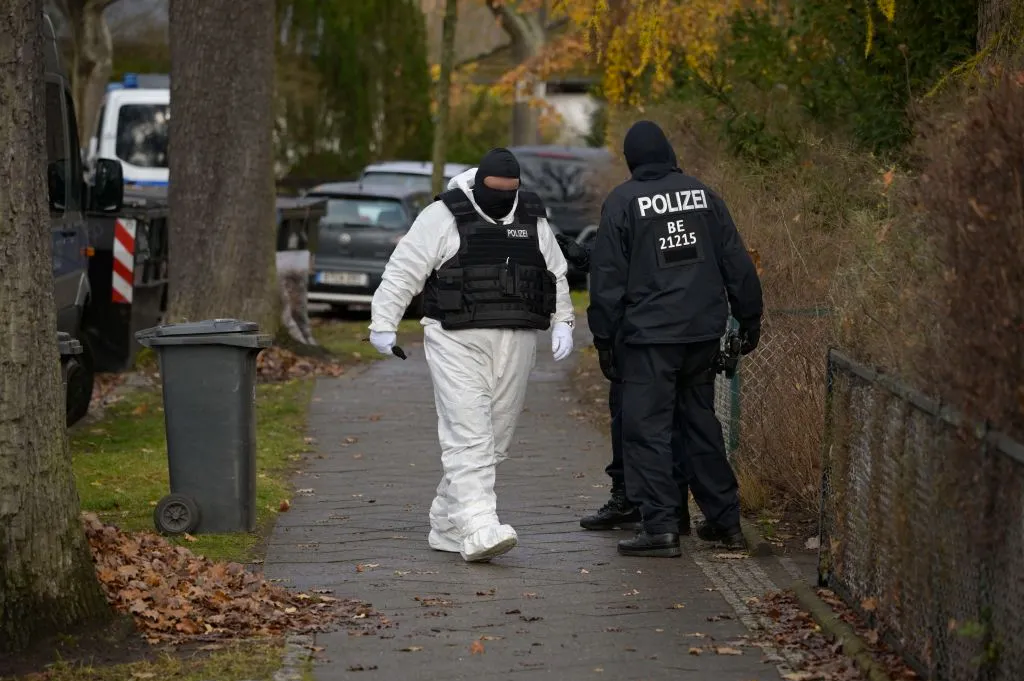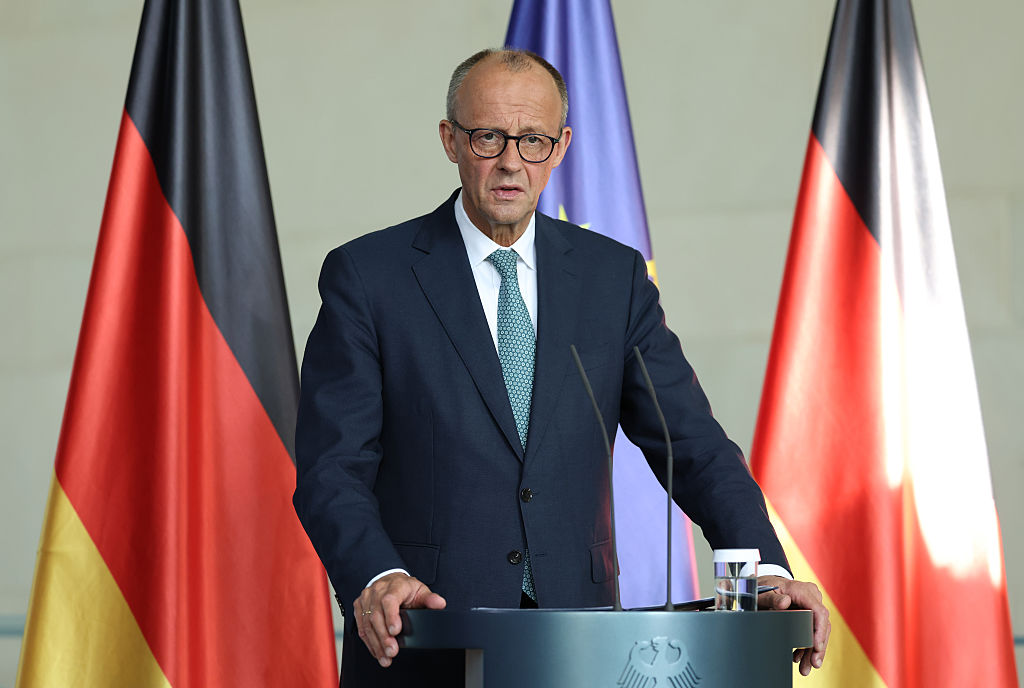Twenty-five people have been arrested by German authorities on suspicion of plotting to overthrow the government.
A failed coup attempt — and a series of raids involving 3,000 officers — seems like the sort of story that might happen in a far-flung part of the world, not the largest economy in Europe. But early reporting indicates there was something fairly typical about this coup attempt: it involved a group of delusional far-rightists and ex-military officers. The false idea that if these men simply waltzed into parliament and placed politicians under arrest, the state would fold and they would get to run the place, seems to have been a factor in their attempt. A similar attitude was held by those who plotted to stage a coup in Portugal in 1975, and Spain in 1981. As with this latest plot in Germany, both attempts to seize power failed miserably.
But there’s an interesting complication to what has happened overnight in Germany. The plotters, it seems, had an aristocratic, even royal, figurehead in mind. Federal prosecutors say that a minor noble called Prince Heinrich XIII was key to the plans to take over the country. The prince, who is seventy-one, was intended to be placed on a revived German imperial throne, which was abolished in 1918 after Germany’s defeat in World War One.
In the pantheon of coups d’état, a royal angle like this — even a quasi-spiritual one — places this more in the line of the abortive coup attempt and ritual suicide of the Japanese writer Yukio Mishima on November 25, 1970. Mishima had been engaged in underground, but seemingly unsuccessful, organizing of a religious army among the officers of Japan’s post-war self-defense forces for several years. In the end, the coup culminated in an announcement from a balcony. In it the writer declared the restoration of the divine emperor, in a spectacle which was watched with bemusement by a few men at a military academy. The speech was followed by Mishima’s suicide.
The German coup plotters appear to lack Mishima’s sense of style and willingness to sacrifice. Instead, their coup resembles something from an airport novel involving old aristocracy and the fun of conspiracy.
The more serious among them may have thought themselves heirs to a tradition of officers’ coups — as we have seen across the Arab world and parts of the Mediterranean in the twentieth century, in Africa in this century, and in Latin America all over. After all, for aristocratic poseurs, especially ex-army ones, brother officers in post-colonial societies might seem to have the most noblesse oblige.
This is not to undermine the seriousness of the situation. The presentation may have been fanciful, but the roots of such drastic action are — as always — deep and murky. Prosecutors say this was a cell of the Reichsbürger (Citizens of the Reich) movement which, far from being ancient or storied, has a depressingly modern (and deranged) online footprint. The grot of Facebook-era conspiracy theories and forum-dwelling racial hatred, after all, hardly differs from place to place.
Across Europe and North America, groups like this have sprung up, often with some ex-military members — often with a surprisingly easy path to acquiring weaponry. The German state says that the Reichsbürger has for a long time been under police surveillance, prompted by a history of violence and a large online footprint.
The federal police says it acted once it detected that plans to kill and to mount the coup were in a late stage, but before the plot could have been put into action. We will see how all of this goes when it is brought to trial.
One final word about coup attempts: groups in democratic societies which consider mounting them have already shown — by the sheer outrageousness of their thinking — that they lack the skills to carry a coup out. Driven by madness and alienation from the contemporary world, many would-be revolutionaries favor ritual bloodletting but rarely plan for what happens next.
Mishima probably tried his coup attempt as a precondition for an elaborate ritualized suicide. It’s possible these misfits thought they could actually overthrow the German state. But as terrorism researcher Thomas Hegghammer has written in a Foreign Affairs essay, the post-9/11 era has so supercharged state power that attempts like this are rendered futile long before the planning stage even begins.
But of course if you are deranged enough to believe you can overthrow a state and install a mystic monarchy disinterred from history’s graveyard, perhaps there is nothing that could ever be done to convince you to calm down and to take up a less dangerous hobby instead.
This article was originally published on The Spectator’s UK website.

























